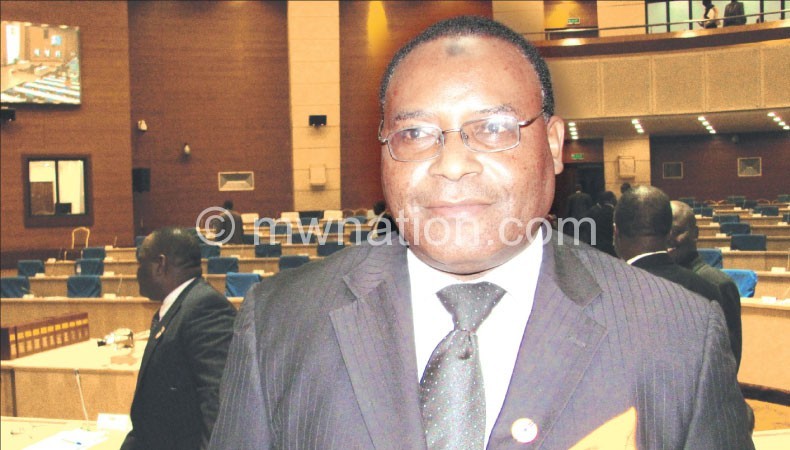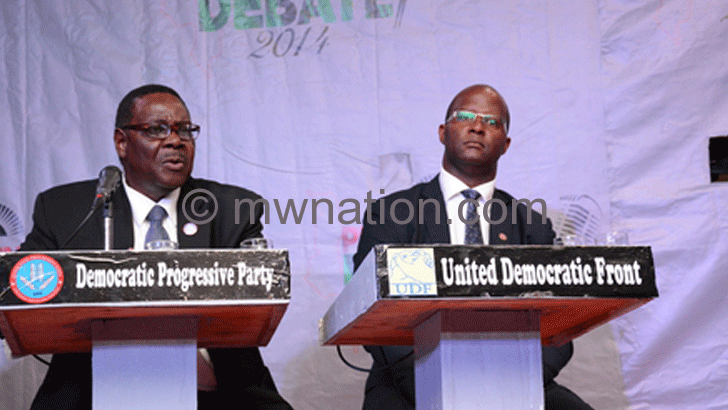With 2019 General Elections barely three years away, some opposition political parties are considering forming a grand coalition to field a single presidential candidate.
While some parties have described the mooted position as a welcome move provided it gets a go-ahead from the majority, political analysts have expressed doubt on the planned alliance’s success.

In an interview on Tuesday, People’s Party (PP) acting president Uladi Mussa said he was “fighting and strategising on the ground” for the opposition parties to field a single candidate during the 2019 polls.
He said: “Tenure of office for People’s Party current office holders is expiring next year. So, around September or October, the party will be going to the convention.
“So, the party’s membership will also decide on the necessity and possibility of forming alliances. But, personally, I believe this is very essential. To me, there is great need for the opposition to gang up and have one candidate to represent us.”
Mussa said the issue of fielding several presidential candidates as was the case in the May 20 2014 Tripartite Elections where 12 contested was not helping the opposition in terms of growth.
In 1999 the country saw a controversial electoral alliance of Malawi Congress Party (MCP) and Alliance for Democracy (Aford) whereas in 2004 there was the Mgwirizano Coalition and in 2009 MCP teamed up with United Democratic Front (UDF) and in 2014 “smaller” political parties formed a not-so-formidable Tisintha Alliance.

However, on all occasions, the alliance partners failed to ascend to power although in 2014 Democratic Progressive Party (DPP) dislodged then incumbent president Joyce Banda and her PP after two years in office.
Mussa said he was yet to launch the lobby for a single candidate, but MCP—the country’s main opposition party in Parliament—believes that would be the way to go.
But MCP president Lazarus Chakwera, who is also leader of opposition in Parliament, said the proposition would require a comprehensive discussion and understanding.
He said: “That would seem to be the way to go but it would mean talking at length and people fully understanding the idea… but I am glad he has brought it up.”
Malawi Forum for Unity and Development (Mafunde) president George Nnensa, who finished eighth during the 2014 elections after leading the Tisintha Alliance, welcomed the proposal saying it would change the country’s political setting.

But political analysts have argued the opposition would not succeed because their interests in forming a grand alliance are not based on principles that are national in nature.
“Even if opposition political parties have noted certain commonalities, the idea just to remove the ruling party would not suffice. Political parties in the country are not policy-based; they pursue self interests and not necessarily national interests so they cannot do that.
“Ultimately, I can foresee them having more problems when in government than the current scenario because they don’t have genuine and strong common interests,” observed Happy Kayuni, a political scientist based at Chancellor College in Zomba, a constituent college of the University of Malawi (Unima).
He advised the opposition to come up with strong arguments for forming a grand coalition if they are to succeed.
“We have never had very good examples of these coalitions except in few countries like South Africa. So yes they can come together but because their interests are not well articulated and not based on national principles I don’t expect the coalition to work,” said Kayuni.
Executive director of Institute for Policy Interaction (IPI), Rafik Hajat, said Malawi follows democratic principles and limiting the number of presidential candidates is denying people their rights.
The analysts and political parties’ views come against a background of the Economist Intelligence Unit (EIU) of The Economist magazine observation that President Peter Mutharika may have an edge over the opposition in 2019 elections, but could slip if the economy worsens, an assertion disputed by MCP and PP who said the analysis was not reflective of reality on the ground.
The EIU—in its 2016 second quarter forecast report for Malawi generated on June 28 2016—saw Chakwera as Mutharika’s biggest threat with his anti-corruption platform.
Chakwera came a close second to Mutharika in the 2014 presidential race in which he swept the Central Region vote while it was the populous Southern Region vote that propelled the incumbent President to victory.
But the magazine dismissed former president Joyce Banda—who came a distant third to Mutharika in 2014—as too saddled with political baggage to mount any challenge for a return to the presidency.
Regionalistic politics, the power of incumbency and a disorganised opposition make Mutharika the favourite, according to EIU, which predicts that he will seek reelection.